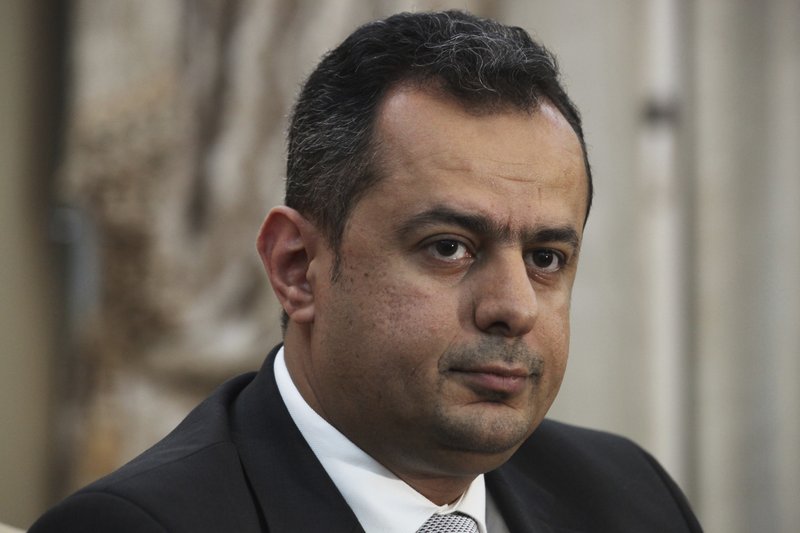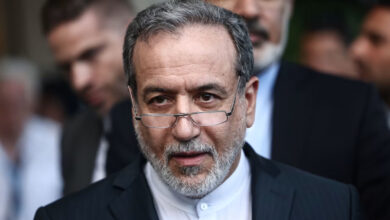
ADEN, Yemen (AP) — Yemen’s internationally recognized government returned to the war-torn country on Monday for the first time since it was forced out by southern separatists during clashes last summer.
Prime Minister Maeen Abdulmalik Saeed landed in the southern port city of Aden, fulfilling a key point in the power-sharing deal signed in Saudi Arabia’s capital of Riyadh that ended months of infighting with separatists in Yemen’s south.
“The government’s priorities in the next stage are to normalize the situation in Aden first and then consolidate state institutions on the ground … as a guarantor of stability,” Saeed told The Associated Press when he disembarked onto the tarmac.
He described the government’s return as foundational for the improvement of services for civilians, but added, “Security challenges cannot be overlooked, especially at this stage.”
Saeed, accompanied by five other ministers from President Abed Rabbo Mansour Hadi’s government, was received by local officials and Saudi forces.
In August, the separatists, backed by the United Arab Emirates, overran Aden and drove out forces loyal to President Hadi, who has been based in Saudi Arabia since 2015.
The outbreak of violence between nominal partners in the Saudi-led coalition’s war against Iran-allied Huthi rebels added a new twist to the country’s complex civil war that had further dimmed hopes of an international solution to the conflict.
Hadi’s ministers were expected to return last Tuesday. But officials blamed southern secessionists for delaying the deal’s implementation and refusing to handover the city headquarters and presidential palace.
The power-sharing deal, signed earlier this month in Saudi Arabia’s capital of Riyadh, calls for both sides to pull their forces out of Aden. That leaves the city under the coalition’s control, with only a presidential guard for Hadi’s protection if the exiled president were to return.
The conflict in the Arab’s world’s poorest country started in 2014, when the Huthi rebels captured the capital, Sanaa, along with much of the country’s north. The Saudi-led alliance intervened in 2015 to drive out the Huthis and restore Hadi’s government.
Saudi Arabia has boosted its military presence in southern Yemen in recent months, following the UAE’s significant troop drawdown that weakened the coalition’s ground presence.
Reporting by MAAD AL-ZIKRY and ISABEL DEBRE
Image: In this Dec. 12, 2018 file photo, Maeen Abdulmalik Saeed, the prime minister of Yemen’s internationally recognized government that the Saudi-led coalition backs, is interviewed by foreign journalists in Aden, Yemen (AP Photo/Jon Gambrell, File)




